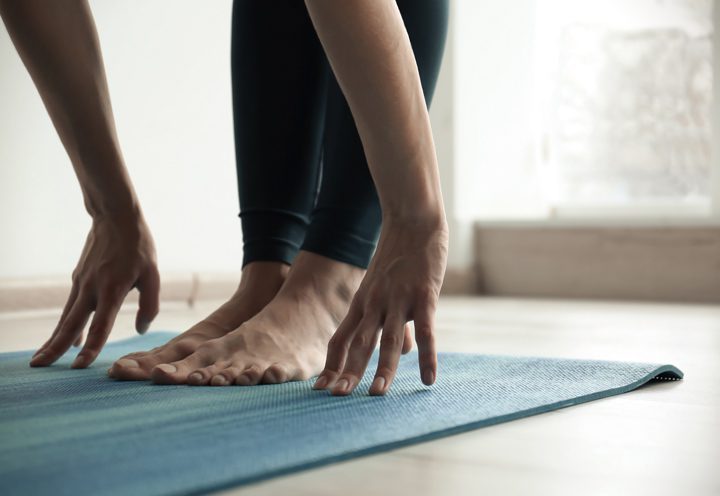
When you go through substance abuse rehabilitation, your body and mind receive a bit of a reset. Detoxification may help your system purge harmful chemicals, and an introduction to proper nutrition starts the rebuilding process at the cellular level. Cognitive behavioral therapy and other forms of psychological awareness provide a road map for new understanding of your past, different triggers, and how to adjust for positive wellness. Somatic experiencing gives you a chance to move beyond trauma and regain a sense of control.
Holistic Treatment Methods
Alternative approaches such as tai chi, equine assisted therapy, mindful meditation, and yoga also help you process emotions, thoughts, and sensations in healthful ways. Often referred to by addiction science experts as “participatory medicine,” these and other holistic modalities demonstrate the concepts of agency and ownership over your health.
Using Yoga to Understand Boundaries
As people in recovery start to embrace the value of therapeutic approaches, recognizing what alternative methods add to their wellness becomes more essential. Emily Mattimoe, coordinator of recreation therapy services at Cottonwood Tucson in Arizona, said that yoga is more than just a way to manage stress: it helps people inherently understand the concepts of ownership and agency “through the power of choice.”
“Do I want to hold this [yoga] pose for another breath, put my hand on a block, or can I push the edge a little more? It’s all about choices and listening to ourselves as to what we truly need,” she says. “Does this feel safe? Does this feel comfortable? Is this too much? Is this too little? We just become more aware of where we are in space, and make choices accordingly.”
Mattimoe said that when people first arrive at a treatment center, many have never tried yoga before, are perhaps a little intimidated by it, or find that the practice doesn’t correspond with what they know. She feels it’s the responsibility of the yoga teaching staff at Cottonwood Tucson to help people feel safer and more comfortable so they can move past limitations.
“If someone is willing and open to it, we like to have a conversation about how can we help with any barriers. For example, if someone’s fear is, ‘I have trauma, and I don’t want the teacher to touch me in yoga class,’—it’s important to vocalize that, because it’s a great place to start. And then we can ask ‘How do you have control over that, what can you do to address it?’ ‘Well, I can ask the teacher not to touch me.’ And then we assure them the instructors will respect them and this choice.”
How Science Supports Your Yoga Practice
Only in the past 20 years or so has the medical community sought to study the positive impact of yoga on physical, emotional, and mental wellbeing. Here are some examples.
The National Center for Complementary and Integrative Health, a division of the U.S. Department of Health and Human Services, now offers an extensive page outlining features and benefits of regular practice and research support.
Results of a 2017 study released by the Journal for Affective Disorders examined the effects of yoga as a means to help people manage depression. The preliminary conclusion is that yoga is a helpful coping mechanism. This is important, as depression is often a co-occurring disorder to addiction.
The American Osteopathic Association supports a consistent yoga practice as a means to provide essential mental and physical health benefits. These include, but aren’t limited to:
- Better sleep and less fatigue. Since people in recovery often struggle with insomnia for the first year or so, this is a wonderful benefit.
- A natural dopamine release to improve mood. Individuals who were once reliant on artificial stimuli for this boost appreciate the opportunity to feel easily refreshed.
- Fewer body aches and joint pain. Even the most gentle yoga practice will enhance circulation, mobilize range of motion in the joints, and relieve stiff muscles and connective tissue.
- A focus on breath helps reduce anxiety. We can’t simply tell ourselves to relax. Focused breathing helps prompt a natural calming response from the parasympathetic nervous system, or the “rest and digest” balance to the “fight or flight” response. Yoga frequently incorporates dedicated breathing techniques that you can also do outside of class.
- Improved mind-body awareness. As Mattimoe mentioned above, there’s often a disconnect between the mind and body after addiction, and residual effects can be long-lasting without access to methods such as yoga and meditation.
The Addictive Behaviors Center at the University of Washington, led by researcher Dr. Alan Marlatt, pioneered the Mindfulness Based Relapse Prevention (MBRP) program. Many people practice both yoga and meditation, but some individuals consider mindfulness to be the first step toward developing those more in-depth approaches. MBRP is designed to help people in recovery “pause, observe present experience, and bring awareness to the range of choices before each of us in every moment. We learn to respond in ways that serves us, rather than react in ways that are detrimental to our health and happiness. Ultimately, we are working towards freedom from deeply ingrained and often catastrophic habits.”
A variety of health organizations have worked with Yoga of 12-Step Recovery and the Give Back Yoga Foundation to provide better access to yoga for people in recovery. This helps them maintain a practice outside of a rehab facility with a community of other individuals who understand what they’ve been through and where they want to go.
Holistic Resources for You at Cottonwood
Healing takes time, but it’s less difficult when you’re assured of methods that help. With a clear head and an open mind, you can enhance your wellbeing through yoga and other holistic approaches.
The experts at Cottonwood Tucson believe in the treatment of mind, body, and spirit, and offer numerous opportunities to explore.







